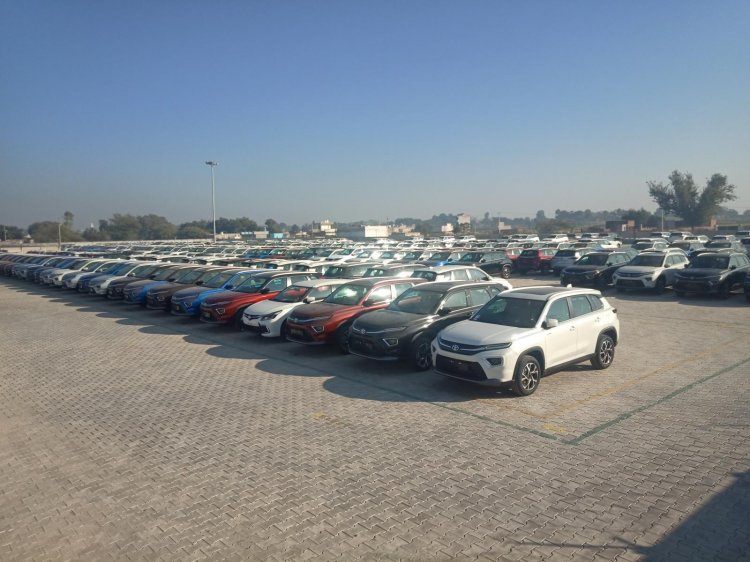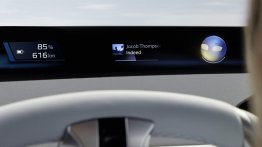Toyota has inaugurated its first regional stockyard at Faruknagar in Haryana. It promises quicker delivery of vehicles delighting customers across seven states in North India.
Ensuring a leaner and more efficient distribution network across the region, the strategically located stockyard will reduce delivery time from the current 6-8 days to a maximum of two days for dealers in Punjab, Haryana, Rajasthan, Uttar Pradesh, Himachal Pradesh, Uttaranchal and Jammu & Kashmir. This development by TKM will also benefit customers in the region who will now have speedier access to their favourite Toyota vehicles as a regional stockyard will ensure deliveries in the shortest possible time to dealers, considering proximity and availability to a vast stock of all Toyota vehicles.
The five-acre stockyard which has a parking capacity of 900 vehicles, is the second such for TKM, following the launch of its first regional stockyard in Guwahati in 2020. The regional stockyard I Guwahati has majorly benefitted the dealers and customers in the North-eastern region of India. Furthermore, the Faruknagar stockyard will aid in speed, flexibility, cost reductions and more importantly CO2 reduction for, as dispatches from the TKM plant to the stockyard will be maximised through train journeys. Currently, 60% of total TKM dispatches take place through trains and our aim is to increase the same to 80%, while being able to deliver 5,000 vehicles per month.
Commenting on the inauguration, Mr. V. Wiseline Sigamani, General Manager, TKM, said, “We are elated to announce the inauguration of our first regional stockyard in Haryana. The Northern part of India is a very important market for us and the strategic location at Faruknagar, will further enable us to cater to the customer base in this market with ease, keeping our objective of a customer-first approach. As a pioneer in green mobility solutions, Toyota is leading the way towards a better tomorrow and has always put an emphasis on environmentally sustainable solutions in everything we do, be it material sourcing, manufacturing, or sales & services. By being in close proximity to our patrons through the regional stockyard, we are not only able to reduce transit costs but also reduce CO2 emissions significantly in the process, through reduced logistics."













